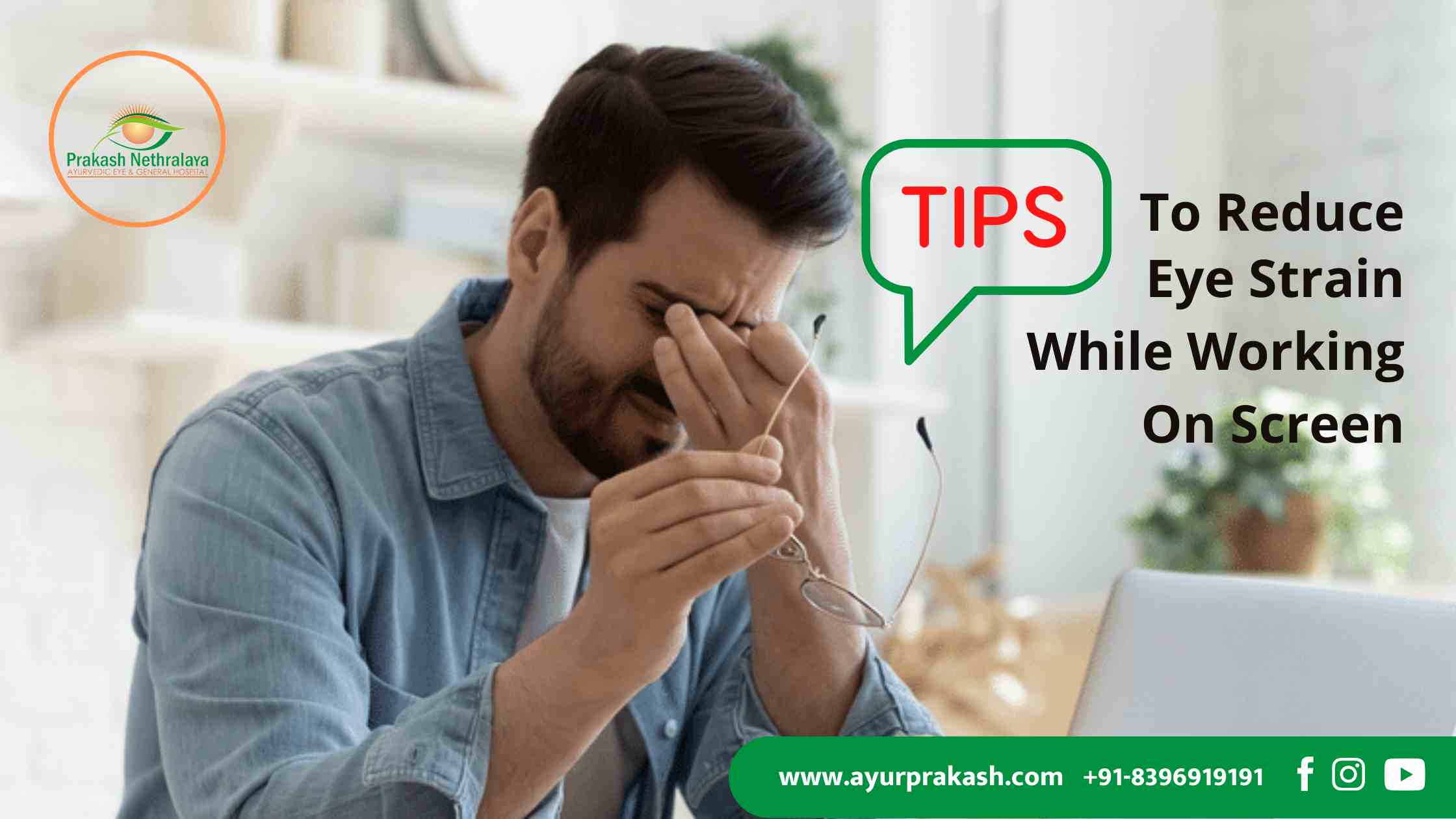The constant shutdowns last year compelled people to shift their workplaces and academic destinations within their screens. Even the ways of entertainment narrowed down from 75mm silver screen to 40-inch LCD screens. The lockdowns definitely lowered the danger posed by COVID-19 but made us all vulnerable to various health problems. The most significant strain was taken up by our eyes that were glued to the screen for all possible purposes, be it official work, shopping, studies, or entertainment. Several eye health experts expressed their concerns about this indirect consequence of COVID-19 pandemic computer vision syndrome.
Constant focus on the screen can lead to eye problems like dry eyes, myopia, double vision, enhanced light sensitivity, redness in eyes, vision deterioration, blurred vision, and pain in the shoulders, neck, and head. These problems may result from spending too much time on any kind of screen, be it a cell phone, tablet, or computer. There has been an increase in the number of people reaching out to eye-specialists for treatment. There is a steep rise in people reaching out for Ayurvedic treatment of dry eyes, blurred vision, and other related problems. However, eye specialists from every stream of the medical world want people to focus on precautionary measures rather than treatment. The eyes happen to be the most sensitive sensory organ of the human body, and it is better to take precautions than to undergo lengthy and sometimes expensive treatments later.
we have assimilated a few tips and suggestions that will help you manage your screen time productively without affecting your health:
1. Avoid Keeping Computer Monitor Next To Windows
Glare and additional light happen to be the biggest culprits behind eye strain. It is not a good idea to keep your computer or tablet next to a window, in balconies, or any corner that receives too much light. And if you have to place your screen next to any such opening, you can always resolve the problem by putting proper curtains or blinds over it. You will need to strain your eyes harder if you are working with your face against an un-shaded surface. Irrespective of the brightness of your screen it will always be lesser than the natural source of light. Consistent working in such an atmosphere can easily result in redness of eyes or dry eyes.
2. Practice Keeping Your Monitor At Proper Height
It’s true, laptops are meant to be in your lap, but it is not healthy to work long hours with them in laps. If you are studying or working from home, it is advised to work on a desktop whose monitor is placed at a comfortable angle to the eye. If you are working with a tablet or a laptop, you can always use an external keyboard and set the screen on a height that offers maximum comfort to your eyes. Conventionally, the screen should not be more than 5-9 inches below the horizontal line of sight.
3. Modify Computer Display Settings
The computer settings are provided for the sole reason of minimizing eye fatigue and strain. If you are working on a screen for more than four hours, it is a must to adjust the display settings so that the user works with utmost comfort without straining eyes. If you are reading lengthy documents on a screen, modify the light and color settings to see the text in one color against the second one. In simple, put it in a way that black print is visible against a white background.
4. Check Colour Temperature
You may have overlooked this setting in office or class, but as you are in close range of screen for a longer time, it is crucial to keep a tab on this aspect. The blue light in the visible spectrum of light has the shortest wavelength compared to red/orange with longer wavelengths. Colors with a shorter wavelength put additional strain on the eyes. So, it is recommended to reduce the color temperature of the screen display. It will reduce the amount of blue light emitted by the screen and ensure better comfort and safety for your eyes.
5. Never Forget To Take Breaks
Despite years of evolution, there wasn’t any condition that modified our eyes to stare at light-emitting objects at a short distance for hours. Your eyes are delicate things that need a break and proper care. The best you can follow is the 20-20-20 rule. It means that you will take a break every 20 minutes and look at any object located at a distance of 20-feet for 20 seconds. You can also try to keep moving your eyes over different things situated at different lengths.
6. Do Not Forget To Blink
We all forget to blink at some point in time, however, with the increasing influence of screens over our lives this occasional reaction is rapidly turning into a dreadful habit. Most people who work longer on computer screens often forget to blink, resulting in irritated, dry eyes. If you ever develop this problem, it is advised to seek proper treatment from experienced doctors. You may either go for allopathic medication, Homeopathic, or Ayurvedic eye treatment for dry eyes depending on your personal preference. Whatever you do, just make sure you reach out to an experienced doctor who has successfully cured patients before you.
7. Get Your Eyes Examined Regularly
With the amount of exposure we are all getting to screen related products, our eyes are bound to get affected sooner or later. The best solution is to get your eyes checked every six months. It will help identify problems at a preliminary stage and save you from unwanted suffering, expenses and regrets.
8. Use Computer Glasses
These days, prescription eye wears are quite a rage. You can get the customised ones for yourself and wear them whenever you are working on screen. If you are using contact lenses, they may dry off and become unsustainable after a while. Computer glasses are also helpful for people using progressive or bifocal lenses.
9. Keep A Tab On Your Diet
By diet, we mean a healthy diet and an adequate intake of vitamin-rich food items. Vitamin A is considered most beneficial for eyes, so make sure you include Vitamin A rich food items like butter, milk, egg yolk, cheese, papaya, etc., in your diet daily.
10. Try To Get A Humidifier
Humidifiers are new products in Indian culture, so everyone is not aware. As the name suggests, humidifiers are machines that increase humidity in the air. They have a vital role in air-conditioned environments where air-conditioners suck the moisture from the air. If not a humidifier, you can try keeping some plants in your working area. Plants are natural air humidifiers. A moisture-rich surrounding reduces strain on eyes and keeps them healthy.
These suggestions are the tip of the iceberg. Working long on computers relates to a sedentary lifestyle that comes with its pros and cons. But if you take up the above-given suggestions a bit seriously, they will help you break the sedentary working style monotony. In the long run, good habits will keep your vitals healthy and maintain overall wellness.



